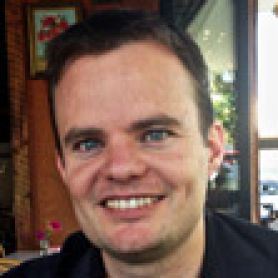
Improved preparedness for emerging infectious disease and chemical/terrorism threats
Adsorbed chemical species on inhalable iron rich particles.
Addresses the synergistic effect of combined emissions from the iron
ore and petrochemical industries on the human health, by understanding
the science involved. CRC CARE Project Grant.
Contact: Prof Alison Jones
Development of an olfactory stress test for the early identification of Alzheimer's disease –
a pilot study.
The sense of smell ('olfaction') is often affected in individuals with
early Alzheimer's disease. This study is investigating whether a simple
change to a standard way of testing olfaction might make it a better
test for detecting early Alzheimer's disease. John Hunter Hospital
Charitable Foundation Trust.
Contact: Prof Alison Jones
Addressing challenges of CBRNE terrorism. Examining
ongoing and optimal ways of communicating with the community in the
event of major or mass emergency situations generally, and CBRNE
situations specifically. National Security Science and Technology Unit -
Australian Government Department of the Prime Minister and Cabinet.
Contact: Prof Alison Jones
An advanced mass spectrometry facility for applications in proteomic and organic chemistry. ARC – LIEF
Contact: Prof Alison Jones
Genes in serotonin toxicity (GISETTO). Serotonin
drugs are widely used in Australia for the treatment of depression and
anxiety. A common and potentially lethal complication of this is a
condition known as serotonin toxicity. This study will identify the
central nervous system genetic risk factors for developing this. This
will increase our knowledge of individual variation in drug response,
improve drug safety and advance the knowledge of the various genetic
components that may affect response to these drugs. University of
Newcastle – NHMRC near miss grant.
Provision of high level toxicology advice and toxicology laboratory services review. NSW Department of Health.
Contact: Prof Alison Jones
Behavioural responses to CBRN incidents. Addressing
the importance of the role that communication plays before, during, and
after a terrorist event. Home Office (UK); Counter Terrorism and
Intelligence Directorate.
Contact: Prof Alison Jones
Media Doctor. A web based media monitoring program
that rates the quality of health news stories. Media Doctor captures
news articles appearing in the mainstream media reporting on
developments in medication interventions. Each news story is categorised
and rated by expert reviewers according to ten quality criteria. A
rating and critique of each story is posted on the website. The aim is
to improve journalists reporting of health news stories.
Contact: Ms Amanda Wilson
The University of Newcastle acknowledges the traditional custodians of the lands within our footprint areas: Awabakal, Darkinjung, Biripai, Worimi, Wonnarua, and Eora Nations. We also pay respect to the wisdom of our Elders past and present.
